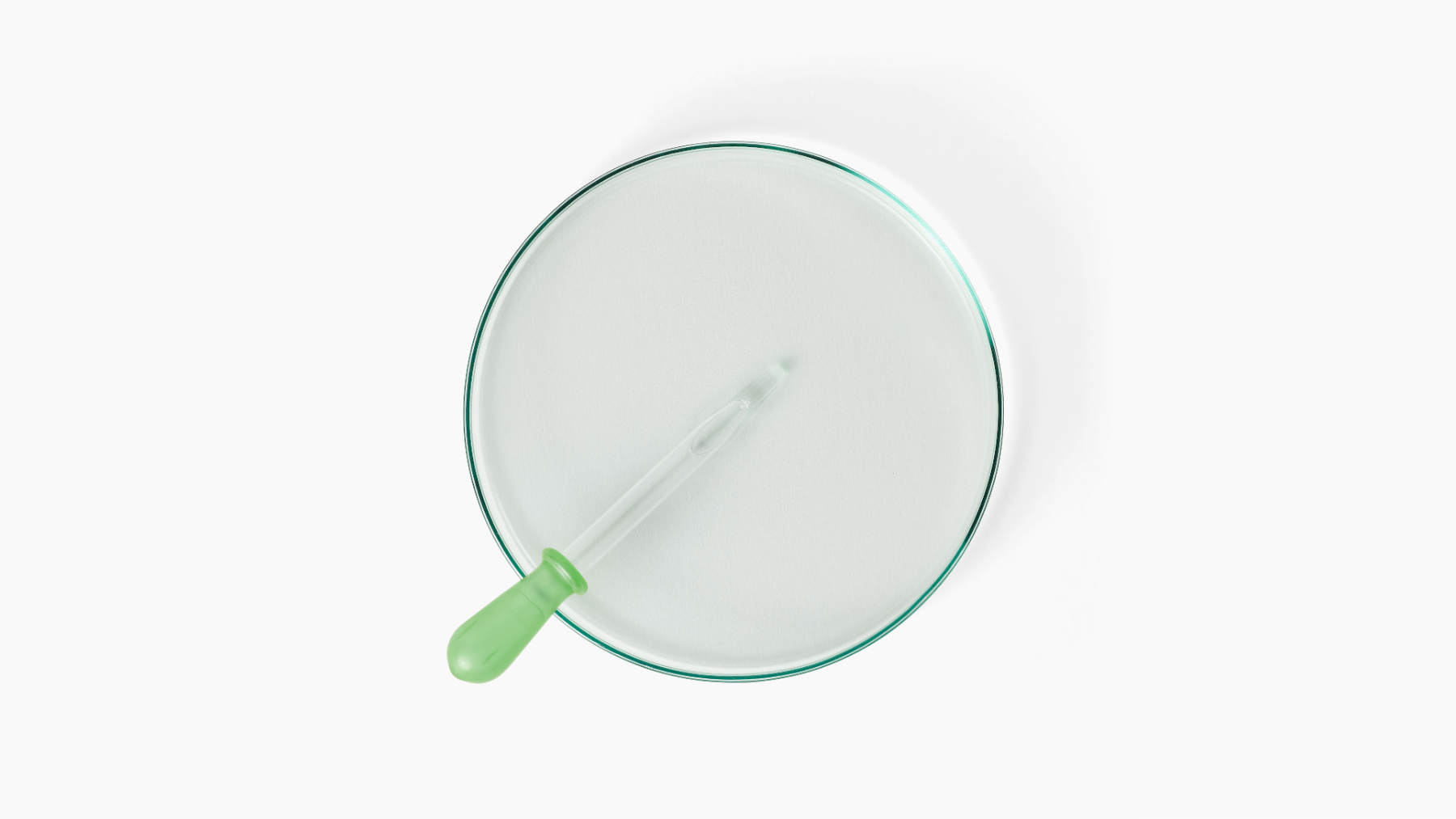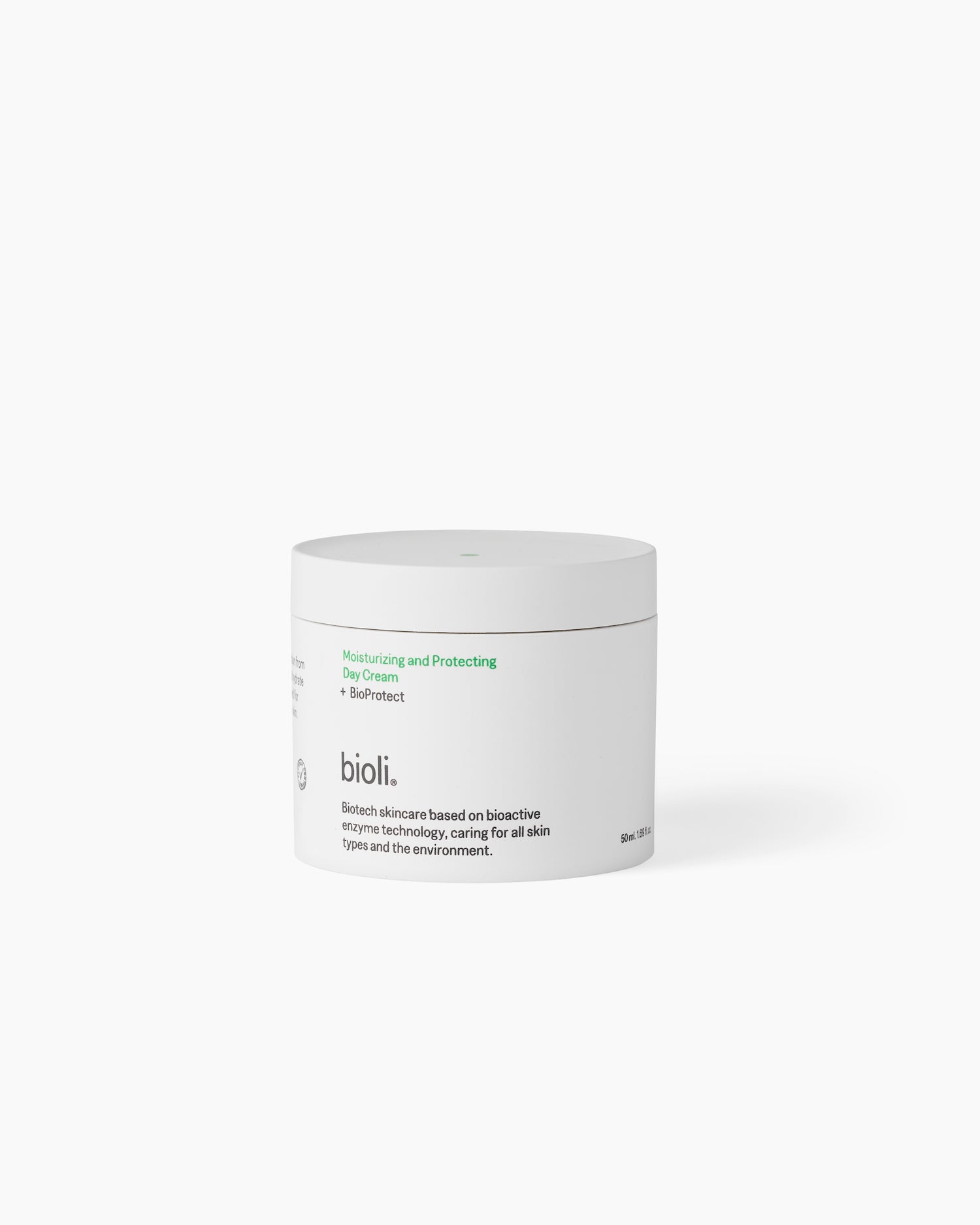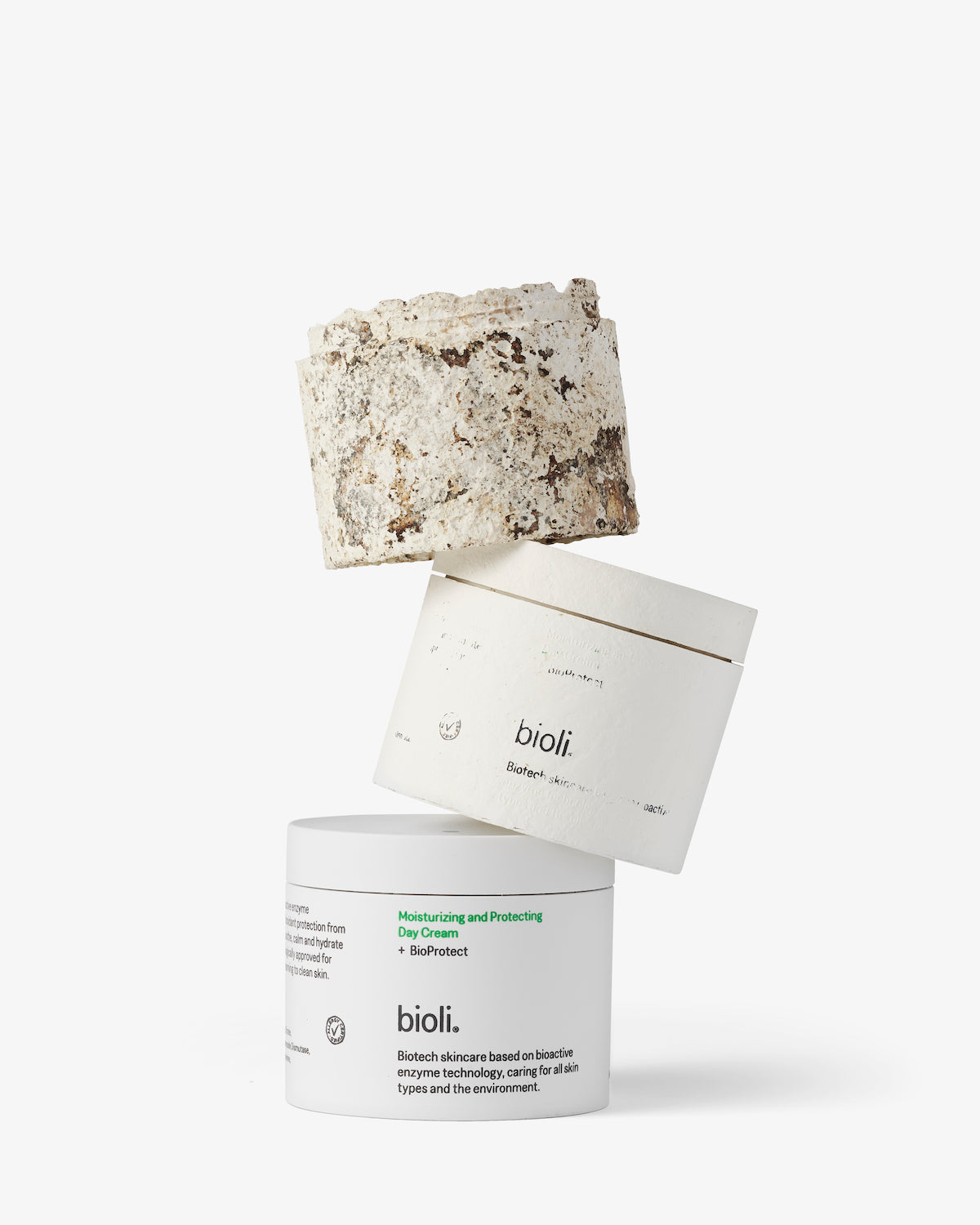Q&A
Explore our Q&A for clear and honest information about Bioli skincare, allergy-friendly products, biotech-based ingredients, sustainable packaging, and skincare for sensitive skin. Get answers to everything from product development, ingredients, and safety to usage, storage, and disposal – all in one place, helping you make informed choices for your skin and the planet.
How are Bioli’s products different from other skincare products?
All Bioli products are formulated for sensitive skin and the environment by default. They use gentle, non-irritating, and effective ingredients that are biotech-derived and 100% biodegradable, providing high-performance benefits while using far less water, energy, and CO₂ than conventional plant or petrochemical alternatives.
Bioli products are AllergyCertified, dermatologically tested, vegan, and cruelty-free, making them safe and highly beneficial for sensitive skin and skin disorders.
All packaging components are 100% biodegradable and completely plastic-free. Containers are made from fermented microorganisms — no glass, no plastic, leaving no trace behind. Outer boxes are eliminated in favor of compostable, FSC®-certified paper bags for storage and shipping, ensuring minimal environmental impact.
Bioli proves that high-quality performance, design, and sustainability can co-exist.
Are the products suitable for sensitive skin?
Yes. All Bioli products are formulated with sensitive skin as the default, using only gentle yet effective, non-irritating ingredients and are free from fragrances. They are suitable for all skin types, including normal, dry, oily, combination, and sensitive skin.
All products are AllergyCertified and dermatologically tested on sensitive skin. In a study conducted under dermatological supervision with 25 volunteers who had a history of allergies or sensitive skin, none reported irritation or allergic reactions, confirming the products’ compatibility. Additionally, Bioli products are classified as non-irritating based on comprehensive skin compatibility tests.
Are the products suitable for acne-prone, rosacea, perioral dermatitis, or eczema-prone skin?
Yes. All Bioli products are safe and suitable for sensitive skin conditions, including acne-prone skin, rosacea, perioral dermatitis, and eczema. Users report that they hydrate effectively, calm itching, reduce redness and flare-ups, and helps restore skin balance, leaving the skin even, healthy, and smooth without irritation.
You can also read honest user reviews on the product pages to see real experiences and feedback.
Where and how are the products developed?
Bioli's products are developed and manufactured in Denmark alongside leading skincare experts and scientists from a top Danish university.
They are fully compliant with the European Cosmetics Regulation (EC) No. 1223/2009 and backed by a third-party Cosmetic Product Safety Report (CPSR), ensuring the highest safety and quality standards.
For manufacturing, we work with a trusted Danish factory known for its reliability and commitment to sustainability. The factory uses recycled water and has upgraded to energy-efficient lighting, minimizing environmental impact while maintaining premium product quality.
Are the products dermatologically tested?
Yes. All Bioli's products are Dermatologically Approved by accredited testing laboratory and independently tested by patch test study, conducted on 25 volunteers with sensitive skin or a history of allergies/atopy. Result: No irritations or allergic reactions observed. Product proven to be well-tolerated, non-irritating, and skin-compatible.
Are the products allergy-certified?
Yes. All Bioli's products carry the Danish AllergyCertified label, one of the world’s strictest allergy safety certifications. Every ingredient is independently assessed by toxicologists and pharmacists for allergens, carcinogens, hormone disruptors, and other potentially harmful substances. Risk assessments cover purity, exposure, and concentration to ensure the lowest possible allergy risk.
Are the products vegan and cruelty-free?
Yes. All Bioli products are 100% vegan, containing no animal-derived ingredients such as beeswax, lanolin, collagen, keratin, or carmine.
In line with EU cosmetics regulations, neither our products nor their ingredients are tested on animals, ensuring they are fully cruelty-free.
How do I dispose the packaging?
You can put the container in your home compost, where it will biodegrade naturally.
If you don’t have a home compost, place it in your general waste. In Denmark, general waste typically goes to incineration, which is fine because the jar is made from plant-based carbon rather than petroleum. This means it releases carbon that is already part of nature’s cycle, making it much less harmful to the environment.
Currently, as compostable packaging, it is not accepted in the bio-waste bin, but if it ends up there by accident, it will still degrade naturally in landfill, unlike conventional plastics that can sit for hundreds of years.





